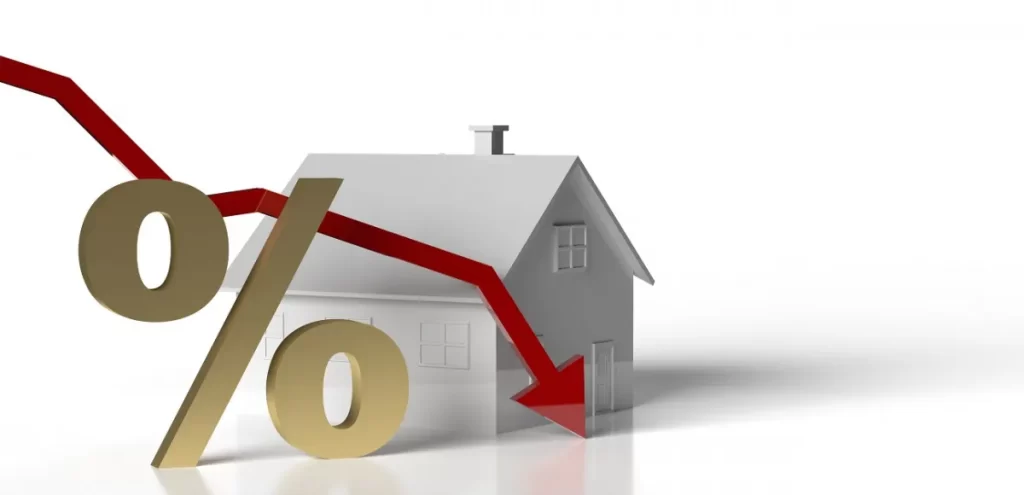
You want to buy a house but are concerned about mortgage costs? You’re not alone. All the high upfront charges […]

Hey there, thinking about refinancing your mortgage in Australia?
Smart move.
Because interest rates are high, refinancing could result in significant savings on your loan. You can take a few actions to make sure you obtain the best offer and won’t subsequently second-guess your decision.
We’re not talking about rocket science here. Continue reading for nine things you must do before refinancing your mortgage. By doing your research, you can reduce your payments, lock in a cheaper rate, and keep more of your monthly income.
Let’s get going!
You’ll want to check your credit score and report to make sure there aren’t any errors before applying to refinance your mortgage. Pull your free credit report and look for any mistakes. Dispute them with the credit bureaus to get them corrected.
The higher your score, the lower your interest rate. Pay off any high-interest debts to boost your score in the months leading up to your refinance.
Get pre-approved by a few different lenders so you can compare rates and fees. This also shows sellers you’re serious, giving you an advantage when negotiating.
Shopping around at different mortgage lenders is key. Compare their interest rates and fees to find the best overall deal. Some things to consider:
Closing costs and fees are unavoidable when refinancing, but shop around at different lenders for the best deal. Some charge application fees, appraisal fees, and origination fees. Ask if any can be waived or reduced. Compare multiple quotes to find lower-cost options.
Before you sign on the dotted line, thoroughly review the fine print of your new mortgage terms. Ask your lender or broker to clearly explain anything you don’t fully understand. It’s important you comprehend the specifics, like:
Penalties for paying off your loan early. Will they charge you extra fees if you want to pay more than your minimum payment each month?
The total interest you’ll pay over the life of the loan. Make sure it’s a good deal for your situation.
Any hidden charges or fees. Question anything that isn’t transparent or seems unreasonable.
Chat with your current lender about matching or beating the offer from your prospective new lender. Let them know you’ve shopped around at other banks and lenders to find a lower interest rate and closing costs.
They may be willing to negotiate to keep your business.
If they won’t budge, take your business elsewhere. But first, work with your new lender to get the best offer possible. Ask if they can lower the interest rate further, reduce or waive some of the closing costs like appraisal or application fees, or provide a lender credit to offset costs.
The more you can save on a refinance, the better.
Before you sign on the dotted line to refinance your mortgage, take time to review your financial goals and needs. Why are you refinancing? Do you want lower interest rates, a shorter loan term, or to tap into your home equity?
Make sure the new mortgage terms align with your key objectives.
To make sure refinancing your mortgage is worthwhile, you’ll need to calculate the total costs involved. Fees typically include:
Add up all the fees to determine your total refinancing costs. Then, calculate your potential savings from a lower interest rate to ensure the fees are worth it before proceeding.
The general rule of thumb is that if you can recoup the fees within 2-3 years through lower repayments, refinancing may be worthwhile. But if the fees significantly impact your equity or savings, it may be better to stick with your current mortgage.
Consider speaking with a mortgage broker if your mortgage situation seems confusing. A competent broker can; evaluate your particular circumstances, analyze offers from several lenders, and assist you in locating the best new mortgage product.
They could also handle the majority of the paperwork; this would make the process flow as smooth as possible.
In summary, preparing well before you refinance your mortgage in Australia will set you up for success and ensure you get the best deal possible.
Do your research, understand your current loan terms, check your eligibility and credit score, determine your goals, shop around at different banks, compare interest rates and fees, negotiate the best offer, have your documents ready, and don’t forget to think about mortgage offset accounts and redraw facilities.
Mortgage refinancing is a significant financial choice, so be sure to approach it with assurance and command of the procedure.
You’ll be in a wonderful position to lower your mortgage payment and accomplish your financial objectives if you adhere to these recommendations. You’ll have peace of mind and a more pleasant refinancing experience thanks to the time you put in up front.
Leave a Reply